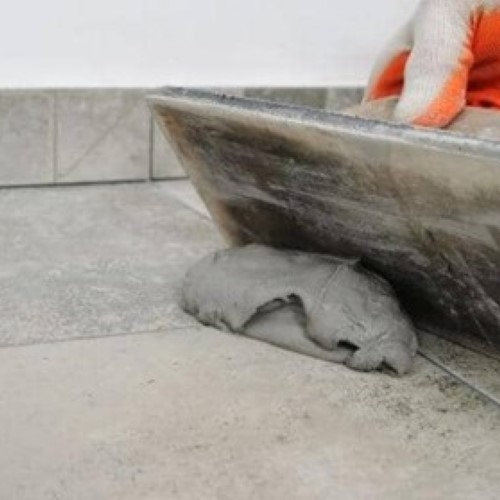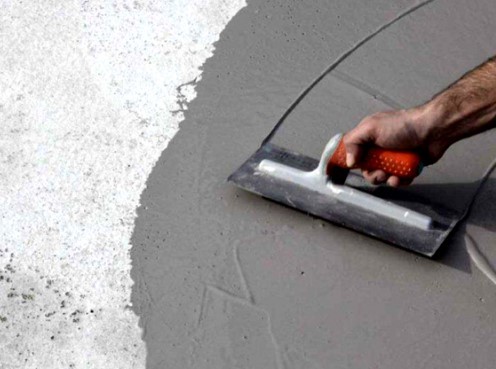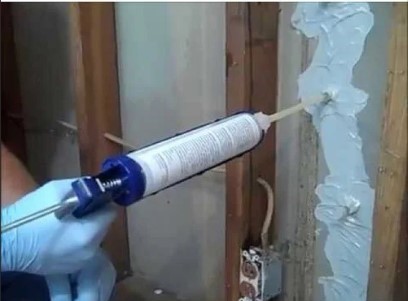Grouting types
Grout is a mixture of cement, sand, and water or chemicals that are used to fill gaps. They are used to repair concrete cracks, fill seams and gaps in tiles, and gaps for sealing and waterproofing. It is also used to give additional strength to the foundations of load-bearing structures. Resins are also used as grout material. All the above give a common purpose which is to fill cracks and voids in soil or rock. It is used to strengthen the soil and make it impermeable.
Advantages of Grouting
- Commonly use on almost any ground condition.
- Grouting reduces vibration and can be controlled to void structural damage
- Improved in-ground structure
- Useful for limited space applications such as adjacent to existing walls
- Grouting can be used to control seepage and groundwater flow
Types of grouting
Cement grouting is a traditional grouting material, it is composed of ceiling and water with additives based on the application area. Cementitious grouts are used to fill voids or cracks in the concrete structure. The process by which cement is applied or injected under pressure to fill fractures and voids in concrete structures. It could fill the cracks and create a mortar that hardens and bonds between the old and new concrete thus filling the cracks or voids and restoring the concrete structure’s strength.
Cement grouting is widely used as an effective repair technique for structural concrete and masonry walls. Cement grouts are also used to stop water infiltration through joints. They are commonly used in the construction process during the construction of the building. It will be used to fill voids between blockwork or bricks and seal penetrations. Such grouting will result in stains on the surface. The most important detail is when applying cement grouting must be done under proper conditions such as temperature and humidity must be monitored so that the grout can be set properly. In addition, the surface must be cleaned and free of debris before application. With proper application, it can provide a strong, durable seal that will extend the life of a concrete structure.
Chemical grouting is a waterproofing material that reacts with water to set and is ideal for solving non-structural water leakage problems. The application includes waterproofing cracks and joints, mine shafts, sewer lines, and concrete walls. It could seal cracks from further deterioration, and stop water flowing through concrete structures. Once the chemical grouting is completed the result is completely filled with a flexible (rubbery-like) product that provides a leak-resistant repair that allows minor movement of the structure without compromising the water tightness of the repair. Chemical grouting could also be injected under pressure through the ports, the grout permeates the concrete and hardens, creating a protective layer to stop the water seepage.
Epoxy Resin grouting is the traditional grout made from a cement-based mix. Epoxy grouting is made of Epoxy resins combined with a filler powder such as cement powder. This is one of the waterproofing materials commonly used for permanent application to seal surfaces. Apart from Epoxy having great filling and adhesive qualities, its best quality is its ability to seal and provide a waterproofing and non-corrosive protective layer. Epoxy Resin is a very versatile material and is used in countless applications, not only in the industrial and commercial sectors but also for residential purposes. Its durability makes it ideal for high–traffic areas like bathrooms, walkways, and balconies. It is not only suitable for flooring it can be used for waterproofing exterior walls. There are several types of Epoxy Resin for different purposes of applications. Epoxy gives a beautiful finishing touch to the applied surface. The disadvantage of Epoxy Resin can turn yellowish after several years or be highly exposed to sunlight.
When Epoxy Resin cures completely it is considered safe for various applications. In general, epoxy is considered non-toxic, both to humans and animals. Besides, the risk associated with ingestion is deemed to be very small, Nonetheless, most chemical products in the market today have some level of toxicity. Epoxy is not an exception; therefore, precaution has to take into consideration for long hours of application. Inhaling or breathing these vapors can cause respiratory problems. The liquid that may contact your hands or skin will react with your skin, causing skin rashes and irritation. In order to protect the applicator, safety measures need to be observed.
Polyurethane (PU) Injection grout is used to stop water leakage and seepages by filling the cracks and voids in the concrete slabs, joints, floor, wall, and even ceiling. The procedure involves the injection of expanding polyurethane into the space created by the water damage. This method is effective on inter-floor ceiling leakage problems. Polyurethane grout can be injected into the lower floor ceiling to stop water leakage.
PU Grouting is a hassle-free and cost-effective solution for home and property owners. There is no need to hack away your flooring or walls. It involves inserting polyurethane (PU) into cracks in concrete and structure.
PU Injection grouting is a non-invasive method of repair and is relatively clean. It has a short curing time, and as a result of its low viscosity, it can expand, and seal tiny cracks to stop and prevent any further leakage. This method is less labor-intensive and safer for family members, with no evacuation or temporary posting during the process. To fully understand the method of PU waterproofing, it is essential to understand the causes of cracks and give a better idea of how PU waterproofing can help protect and stop the leakage of your home and property.
SWC Construction is an expert in using the latest technology of Polyurethane (PU) injection grouting to provide waterproofing solutions for industrial, commercial, and residential properties. We have more than 20 years of experience in waterproofing and have proven with good Google reviews of success in providing quality and service to our customers.
Contact SWC Construction now, and find out more about our services and recommendations on how we can assist you to resolve your waterproofing or water leakage problems. We provide non-obligation on-site inspection on your property before we give you our professional recommendation based on the on-site inspection.






